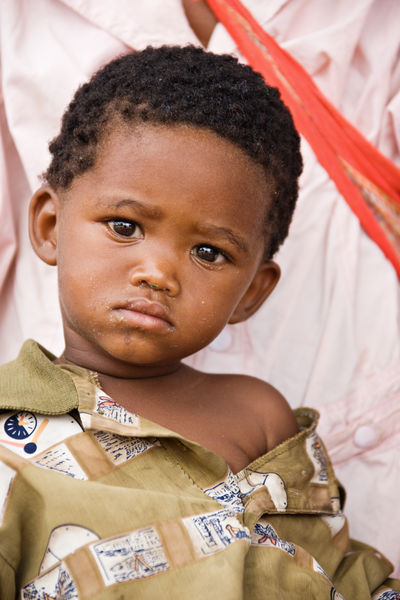Marasmus

Marasmus is one component of protein-energy malnutrition (PEM), the other being kwashiorkor . It is a severe form of malnutrition caused by inadequate intake of protein and calories , and it usually occurs in the first year of life, resulting in wasting and growth retardation. Marasmus accounts for a large burden on global health. The World Health Organization (WHO) estimates that deaths attributable to marasmus approach 50 percent of the more than ten million deaths of children under age five with PEM.
The major factors that cause a deficit of caloric and protein intake include the following: the transition from breastfeeding to nutrition-poor foods in infancy, acute infections of the gastrointestinal tract, and chronic infections such as HIV or tuberculosis . The imbalance between decreased energy intake and increased energy demands result in a negative energy balance.
The physiologic response to a negative energy balance is to reduce energy consumption. Children who suffer from marasmus display decreased activity, lethargy, behavioral changes, slowed growth, and weight loss. The subsequent effects on the body are wasting and a loss of subcutaneous fat and muscle, resulting in growth retardation. The majority of children who suffer from marasmus never return to age-appropriate growth standards.
The cornerstone of therapy for marasmus is to supply the body with the necessary nutritional requirements . The nutritional needs of children in the rehabilitation stage require at least 150 kilocalories per kilogram per day. Dehydration must be addressed with oral rehydration therapy, while micronutrient deficiencies, such as vitamin A deficiency, require supplementation. Immunizations must be reviewed and given as necessary to reduce the burden of infectious diseases on children's bodies. Finally, family education must be ongoing to improve behavioral responses to such conditions. Some ready-to-use formulas and foods have also been developed. Such a broad approach must be taken to help reduce the morbidity and mortality caused by this condition.
SEE ALSO Calorie ; Infant Mortality Rate ; Kwashiorkor ; Malnutrition ; Protein .
Seema Pania Kunar

Comment about this article, ask questions, or add new information about this topic: